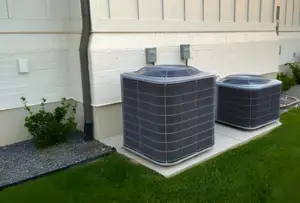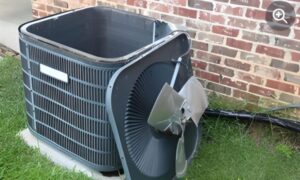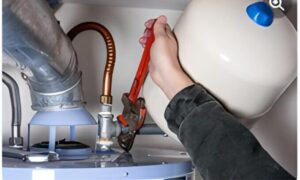Are you tired of cold showers and high energy bills? If so, you may be dealing with a common yet often overlooked problem: sediment buildup in your water heater. This accumulation of debris can have a detrimental effect on the performance and efficiency of your heater, leading to decreased water flow and increased energy consumption.
But fear not, because in this article, we will reveal the secret to revitalizing your water heater and restoring it to its optimal condition. Stay tuned to uncover the simple yet effective steps you can take to flush out the sediment and ensure a steady supply of hot water for years to come.
Symptoms of Sediment Buildup
One of the key indicators that your water heater may have a sediment buildup is a noticeable decrease in hot water supply. Sediment buildup occurs when minerals and debris settle at the bottom of the tank, reducing the capacity and efficiency of the heater.
To prevent sediment buildup and ensure proper maintenance of your water heater, it is crucial to employ proper maintenance techniques. One effective method is flushing the tank regularly to remove any accumulated sediment.
This can be done by turning off the heat supply, shutting off the cold water supply, and attaching a hose to the drain and a cold hose bibb. By backflushing the heater and allowing water to flow from the hot faucet, sediment can be flushed out. Implementing these preventive measures will help maintain the efficiency and prolong the lifespan of your water heater.
Flushing Sediment From Your Water Heater
To effectively remove sediment buildup from your water heater, it is essential to perform a thorough flushing process. Flushing your water heater regularly has numerous benefits, including improving its efficiency, prolonging its lifespan, and reducing the risk of costly repairs. Signs of a failing dip tube, such as decreased hot water temperature and inadequate hot water supply, indicate the need for flushing.
While homeowners can perform the flushing process themselves, there are also benefits to hiring a professional. Professionals have the expertise and specialized equipment to ensure a thorough and effective flush, removing all sediment from the tank and preventing future buildup. Additionally, they can identify and address any potential issues with the dip tube or other components of the water heater, ensuring optimal performance and longevity.
Alternative Methods to Remove Sediment
Are there alternative methods available for removing sediment from your water heater? While flushing the sediment out of your water heater is the most common method, there are other options to consider. One alternative method involves using chemicals to remove sediment. Specifically, you can use a descaling agent designed specifically for water heaters.
These chemicals work by breaking down and dissolving the sediment, making it easier to remove. Simply follow the instructions provided by the manufacturer to safely and effectively use the descaling agent. It is important to note that when using chemicals, proper safety precautions should be taken, such as wearing protective gloves and eyewear, and ensuring proper ventilation. Using a descaling agent can be a convenient and effective way to remove sediment from your water heater.
Considering Replacement of the Water Heater
When assessing the need for a water heater replacement, several factors should be taken into consideration. One important factor is the age of the water heater, as most water heaters have a lifespan of around 12 years. Additionally, cost considerations play a significant role in determining whether a replacement is necessary.
The cost of replacing elements and potential additional repairs should be weighed against the cost per year of limited added life. It is also important to consider the potential failure of the lower element or dip tube, as these can lead to further issues with the water heater. If replacement is deemed necessary, it is recommended to call a plumber for professional assistance. Taking these factors into account will help ensure a well-informed decision regarding the replacement of your water heater.
Importance of Complete Flushing
Complete flushing of a water heater is crucial to maintaining its efficiency and prolonging its lifespan. Sediment buildup is a common problem in water heaters, and it occurs when minerals and debris settle at the bottom of the tank over time. This buildup can lead to reduced efficiency, increased energy consumption, and even premature failure of the heating elements.
Professional flushing offers several benefits, including the removal of all sediment and ensuring optimal performance. A professional technician has the expertise and equipment to thoroughly flush the water heater, eliminating any accumulated sediment. This process helps to prevent clogs, improve water flow, and extend the lifespan of the heater. It is recommended to schedule professional flushing regularly to prevent sediment buildup and ensure the efficient operation of your water heater.
Need for a Shutoff Valve for Tankless Hot Outlet
Installing a shutoff valve for the tankless hot outlet is an essential step in ensuring the proper functioning and maintenance of your water heater. This valve allows you to isolate the hot water supply to the tankless unit, making it easier to perform necessary maintenance tasks such as flushing the system or replacing components.
Without a shutoff valve, you would need to shut off the water supply to the entire house, which can be inconvenient and time-consuming. Additionally, a shutoff valve provides added safety by allowing you to quickly stop the flow of hot water in case of an emergency or if repairs are needed. When installing a shutoff valve, it is important to follow the manufacturer’s instructions and consult a professional if you are unsure about the process. Regular maintenance, including the installation of a shutoff valve, is crucial for the longevity and efficiency of your tankless water heater.
Importance of Regular Flushing
Regular flushing of your water heater is essential for maintaining its efficiency and prolonging its lifespan. Sediment buildup is a common problem in water heaters, and it can significantly impact their performance. Over time, minerals, sediment, and debris accumulate at the bottom of the tank, reducing its capacity and inhibiting heat transfer.
This leads to decreased hot water supply, lower water flow, increased energy consumption, and potential damage to the heating elements. Flushing the water heater helps remove the sediment, improving its efficiency and preventing potential issues. It is recommended to have professional maintenance for your water heater, as they have the expertise and tools to perform a thorough flush. Regular flushing not only enhances the performance of your water heater but also extends its lifespan, saving you money in the long run.
Potential Dangers of Corrosion
Corrosion in a water heater can pose significant dangers and potentially lead to costly repairs or even the need for replacement. Neglecting maintenance and allowing corrosion to develop can have serious consequences. One danger is the weakening of the tank itself, which can result in leaks or even a catastrophic failure.
Corrosion can also lead to decreased efficiency and performance of the water heater, resulting in higher energy consumption and increased utility bills. Additionally, the presence of corrosion can contaminate the water supply, posing health risks to users. To prevent corrosion, regular maintenance is essential. Flushing the water heater periodically to remove sediment buildup is crucial.
Installing sacrificial anode rods can also help prevent corrosion by attracting corrosive elements. Furthermore, keeping the water heater in a dry and well-ventilated area can minimize the risk of moisture-related corrosion. By taking proactive measures to prevent corrosion, homeowners can ensure the longevity and safety of their water heaters.
Additional Considerations and Resources
In addition to regular maintenance and prevention of corrosion, there are several important considerations and resources to keep in mind when it comes to your water heater. One of the potential benefits of maintaining your water heater is the extended lifespan and improved efficiency. Flushing out sediment build-up is a key maintenance tip to keep your water heater functioning optimally. This process involves turning off the heat supply, shutting off the cold water supply, and attaching a hose to the drain.
Additionally, alternative methods such as siphoning out water or using a water blaster can be used to remove sediment. It is also important to consider the age of the water heater and the potential costs of replacing elements and additional repairs. Regularly flushing the water heater and being aware of potential dangers of corrosion are crucial for its longevity and safety.
For further information and resources, consult professionals in the field or refer to reliable sources.









